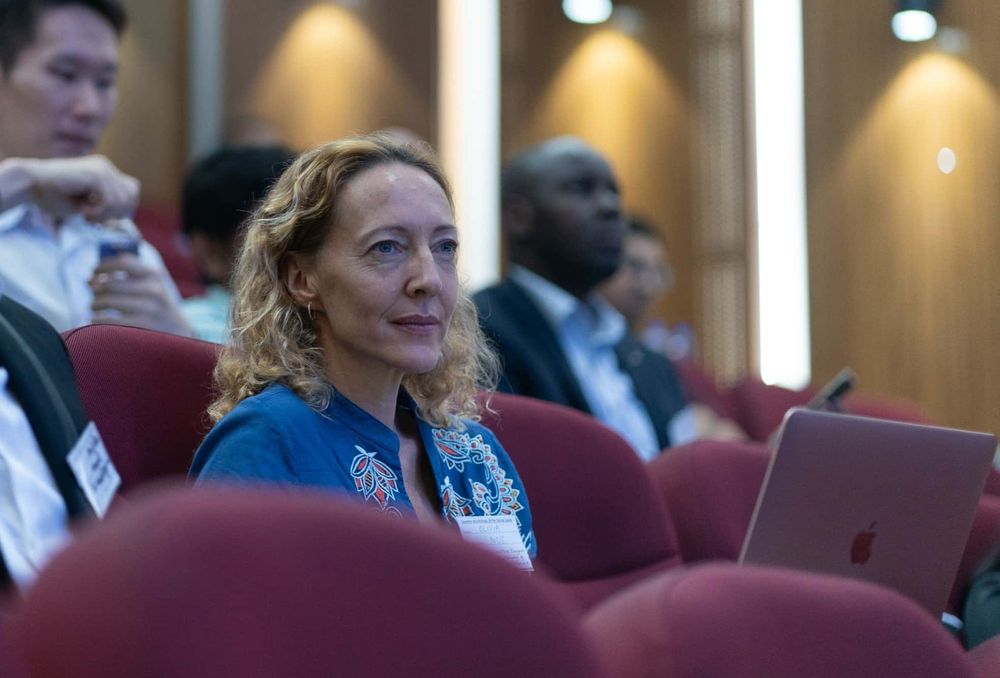A collaborative project from the Association of Pacific Rim Universities (APRU) and the United Nations Economic and Social Commission for Asia and the Pacific is empowering artificial intelligence (AI) solutions to tackle socioeconomic challenges in Asia and the Pacific.
The “AI for Social Good: Strengthening Capabilities and Governance Frameworks in Asia and the Pacific” initiative, funded by Google.org, worked closely with academics and government stakeholders to provide research insights and practical suggestions to accelerate the development of data-driven policies and strategies, effectively leveraging AI for societal good. Noteworthy outcomes include country-wide case studies on:
I) How AI applications are being mobilised for maternal health in Bangladesh
II) Key initiatives addressing digital health governance and data governance for poverty alleviation in Thailand
ENHANCING MATERNAL HEALTH IN BANGLADESH WITH AI APPLICATIONS
Maternity care in Bangladesh faces substantial challenges, including limited monitoring and access barriers. APRU partnered with the Bangladesh Aspire to Innovate Programme, National University of Singapore (NUS), the Korea Advanced Institute of Science and Technology, and the University of Hawai’i to explore using AI innovations to boost maternal health outcomes.
The project aims to assess the potential of AI applications in supporting maternal health objectives in Bangladesh, with a focus on user group receptivity and alignment with existing antenatal care delivery systems. It emphasised the importance of community health workers as key stakeholders in the continuum of antenatal care, highlighting their potential to benefit from digitalisation and ultimately AI tools.
Researchers recommended:
• Digitalising standardised antenatal care data entry in the public health system, and
• Implementing a mobile-based appointment tracking and automated reminder system for mothers and health workers
“The collaboration across sectors enabled us to incorporate perspectives from academic research on risk perception and communication, which were highly regarded by our government partners,” said Professor Olivia Jensen, Deputy Director and Lead Scientist (Environment and Climate) at NUS and research lead of the NUS project team. “To fully harness the future potential of AI in antenatal care, strategic digitisation efforts should prioritise inter-operability, strengthen underlying infrastructure and organisational processes and target universal coverage with a focus on the most vulnerable groups. Systems and applications should be designed to meet the needs of healthcare providers and expecting mothers, based on a strong foundation of evidence.”
AI FOR DIGITAL HEALTH GOVERNANCE AND POVERTY REDUCTION IN THAILAND
In Thailand, researchers from NUS identified barriers to sharing medical data and provided tangible policy recommendations to the Thai Government, including developing data-sharing guidelines, promoting data exchange platforms, and facilitating stakeholder dialogues to address challenges in digital health governance.
Another project, led by the Australian National University (ANU), focused on enhancing information exchange within Thailand’s administration to optimise poverty alleviation efforts using advanced analytics.
Dr Sarah Logan, Research Fellow/Lecturer in the Department of International Relations at ANU said, “These initiatives and research findings are instrumental to Thailand’s poverty alleviation goals as they highlight challenges related to data integration, standardisation, resource allocation, and high-level leadership directives in the public welfare domain. By implementing recommended policy measures and navigating cultural biases, we are confident that Thailand can fully leverage advanced AI and analytics platforms and create positive impact toward enhanced outcomes in poverty alleviation.”
The “AI for Social Good” project showcases the value of uniting cross-disciplinary and cross-sectoral stakeholders in a collaborative effort to conduct research and craft policy recommendations. With the successful rollout of the “AI for Social Good” project, APRU aims to foster more cross-border connections and provide active support in developing country-specific AI governance frameworks.
The final report of “AI for Social Good” can be downloaded here: https://apru.org/resources_report/final-report-ai-for-social-good/




